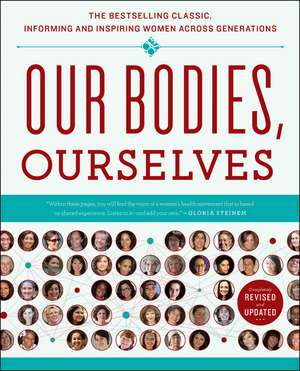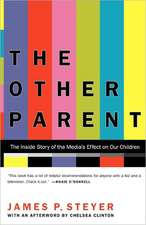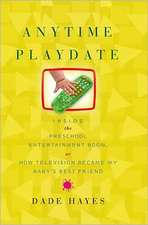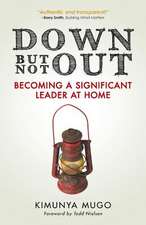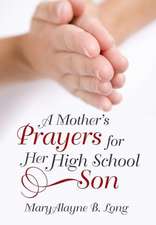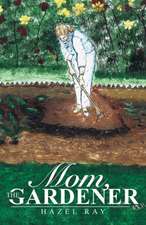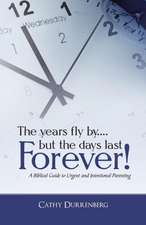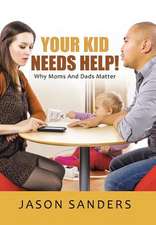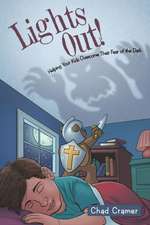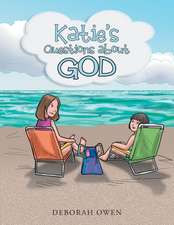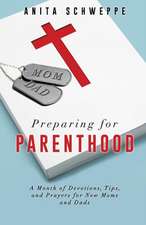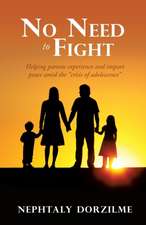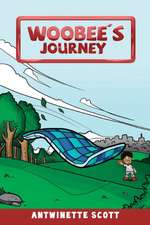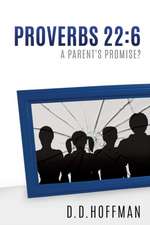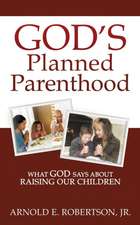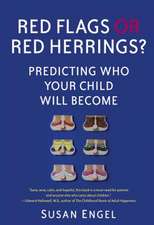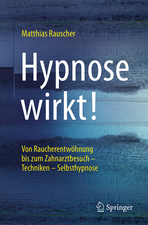Our Bodies, Ourselves: A Bestselling Health Guide
Autor Boston Women's Health Book Collective, Judy Norsigianen Limba Engleză Paperback – 13 oct 2011
| Toate formatele și edițiile | Preț | Express |
|---|---|---|
| Paperback (3) | 113.43 lei 3-5 săpt. | |
| ATRIA – 19 mai 2008 | 113.43 lei 3-5 săpt. | |
| ATRIA – 19 aug 2007 | 122.68 lei 3-5 săpt. | |
| ATRIA – 13 oct 2011 | 240.33 lei 3-5 săpt. |
Preț: 240.33 lei
Nou
Puncte Express: 360
Preț estimativ în valută:
45.99€ • 48.14$ • 38.05£
45.99€ • 48.14$ • 38.05£
Carte disponibilă
Livrare economică 15-29 martie
Preluare comenzi: 021 569.72.76
Specificații
ISBN-13: 9781439190661
ISBN-10: 1439190666
Pagini: 944
Ilustrații: 90 b-w photos
Dimensiuni: 187 x 232 x 51 mm
Greutate: 1.57 kg
Ediția:Revizuită
Editura: ATRIA
Colecția Atria Books
Seria A Bestselling Health Guide
ISBN-10: 1439190666
Pagini: 944
Ilustrații: 90 b-w photos
Dimensiuni: 187 x 232 x 51 mm
Greutate: 1.57 kg
Ediția:Revizuită
Editura: ATRIA
Colecția Atria Books
Seria A Bestselling Health Guide
Notă biografică
The Boston Women’s Health Book Collective (now known as Our Bodies Ourselves) is a non-profit organization founded in 1969 whose advisors have included Teresa Heinz Kerry, Susan Love, and Gloria Steinem. Their mission is to empower women (and others) by providing information about health, sexuality, and reproduction. For five decades Our Bodies, Ourselves was the organization’s core vehicle for driving their mission. While OBOS is still recognized for its voice in policy, advocacy, and educational efforts related to women’s health, and women’s groups across the globe continue to produce translation/adaptations of this iconic text. Judy Norsigian is the current board chair of Our Bodies Ourselves.
Extras
Our Bodies, OurselvesINTRODUCTION
We are delighted to present Our Bodies, Ourselves—an in-depth look at women’s sexuality and reproductive health, from the first gynecological exam to sexual health in our later years.
Since its first newsprint edition published in the early 1970s, Our Bodies, Ourselves (OBOS) has enabled women to learn about their bodies, gain insight from the experiences of other women, and consider how best to achieve political and cultural changes that would improve women’s lives. This completely revised and updated ninth edition, released on OBOS’s fortieth anniversary, covers topics ranging from sexual anatomy, body image, and gender identity to pregnancy and birth, perimenopause/menopause, and navigating the health-care system.
This edition reflects the perspective and voices of a wide range of women, and their stories are told through new formats. At our invitation, more than three dozen women of all ages and identities participated in a monthlong online conversation about sexuality and relationships; we found their honesty and forthrightness so compelling that the conversation itself became the foundation of a new “Relationships” chapter.
Other new voices include women’s organizations around the world that have created their own resources adapted from Our Bodies, Ourselves. Throughout the book, you will meet members of the Our Bodies Ourselves Global Network and read about their work on issues such as abortion, infertility, HIV education and prevention, and social activism. From distributing posters via canoes in rural Nigeria to setting up interactive websites in Israel and Turkey and reshaping health policy in Nepal and Armenia, their efforts exemplify movement building and the power of voices raised in action.
This edition focuses on the core health issues—reproductive health and sexuality—that first brought the Boston Women’s Health Book Collective together. Some topics added over the years—such as nutrition, emotional health, and medical conditions that disproportionately or differently affect women—have been omitted this time, in part because information is now more readily available elsewhere. This has given us room to expand on issues such as reproductive rights, violence against women, and environmental health, which not only are centrally related to women’s sexual health and well-being but also are areas where, despite decades of advocacy and activism, women still face enormous challenges and obstacles that prevent them from leading safe and healthy lives.
Our Bodies, Ourselves is both a text dedicated to factual information grounded in the best available evidence and a resource about health-care inequities and the work of those dedicated to ending social injustices. The many contributors to this book did not always agree on how to analyze the social, economic, and political forces that affect women’s health or how to characterize a medical controversy. When a conclusion remains uncertain, we have shared their questions and concerns so readers can make their own decisions in the absence of the kind of evidence we ultimately hope will be available. Our website (ourbodiesourselves.org) contains additional content, references, and useful links on women’s health topics not covered in this book.
OUR BODIES OURSELVES GLOBAL INITIATIVE
Ever since Our Bodies, Ourselves became a best seller in the United States, it has inspired women in other countries to adapt it—in part or as a whole—to their unique cultural needs. Through the our Bodies ourselves Global Initiative, we support more than twenty-two women’s organizations as they develop materials based on Our Bodies, Ourselves and use their resources in wide-scale outreach to advance the health and human rights of women and girls in their countries. Although the earliest projects were located primarily in Europe, we have since collaborated with organizations across Africa, South and Southeast Asia, the Middle East, Latin America, and Europe to bring culturally meaningful and reliable information to communities where it is most needed. As a result of our partnerships, resources based on the book are now available in more than twenty-five languages and in print, digital, and other socially interactive formats. You will read about our partners in the “In Translation” sidebars and we invite you to visit ourbodiesourselves.org/programs/network to learn more.
As always, we recognize how the personal is often political and thus underscore when individual solutions are not possible or not lasting. Throughout the book, women who have joined with others to bring about change share their stories. The combination of practical information with political critique and women’s lived experiences has long been the hallmark of Our Bodies, Ourselves and is one of the reasons the book has remained one of the most enduring legacies of the women’s movements that grew out of the late 1960s and early 1970s.
Much has changed in the United States since the first edition, when abortion was illegal, birth control was not widely available, and the few available texts on women’s health and sexuality—almost all written by men—discounted women’s experiences and perspectives. Today, information is abundant, but it is still difficult to find reliable information that encompasses the diversity of women’s experiences and teases apart the conflicts of interest inherent in many issues that affect women’s health. Far too often, corporate and pharmaceutical interests influence medical research, information, and care, and contribute to the unnecessary medicalization of women’s bodies and lives. This not only wastes money and poses avoidable risks but also can discourage women from questioning the assumptions underlying the care they receive and from valuing and sharing their own insights and experiences. The need for a book like Our Bodies, Ourselves remains as strong as ever.
Changing the medical system, organizing for better care, and altering the larger social, political, and economic forces that limit women’s lives require creative and concerted efforts over a long period of time. We believe that enhancing reproductive health and sexual pleasure can play a significant positive role in all our lives and strengthen us as we work toward sustaining a vision of a world that will better nurture all women, men, and children. We encourage you to explore this book with curiosity and vision.
OBOS Editorial Team: Kiki Zeldes, Christine Cupaiuolo, Wendy Sanford, Judy Norsigian, Amy Romano, June Tsang, and Ayesha Chatterjee Spring 2011
INTRODUCTION ![]()
We are delighted to present Our Bodies, Ourselves—an in-depth look at women’s sexuality and reproductive health, from the first gynecological exam to sexual health in our later years.
Since its first newsprint edition published in the early 1970s, Our Bodies, Ourselves (OBOS) has enabled women to learn about their bodies, gain insight from the experiences of other women, and consider how best to achieve political and cultural changes that would improve women’s lives. This completely revised and updated ninth edition, released on OBOS’s fortieth anniversary, covers topics ranging from sexual anatomy, body image, and gender identity to pregnancy and birth, perimenopause/menopause, and navigating the health-care system.
This edition reflects the perspective and voices of a wide range of women, and their stories are told through new formats. At our invitation, more than three dozen women of all ages and identities participated in a monthlong online conversation about sexuality and relationships; we found their honesty and forthrightness so compelling that the conversation itself became the foundation of a new “Relationships” chapter.
Other new voices include women’s organizations around the world that have created their own resources adapted from Our Bodies, Ourselves. Throughout the book, you will meet members of the Our Bodies Ourselves Global Network and read about their work on issues such as abortion, infertility, HIV education and prevention, and social activism. From distributing posters via canoes in rural Nigeria to setting up interactive websites in Israel and Turkey and reshaping health policy in Nepal and Armenia, their efforts exemplify movement building and the power of voices raised in action.
This edition focuses on the core health issues—reproductive health and sexuality—that first brought the Boston Women’s Health Book Collective together. Some topics added over the years—such as nutrition, emotional health, and medical conditions that disproportionately or differently affect women—have been omitted this time, in part because information is now more readily available elsewhere. This has given us room to expand on issues such as reproductive rights, violence against women, and environmental health, which not only are centrally related to women’s sexual health and well-being but also are areas where, despite decades of advocacy and activism, women still face enormous challenges and obstacles that prevent them from leading safe and healthy lives.
Our Bodies, Ourselves is both a text dedicated to factual information grounded in the best available evidence and a resource about health-care inequities and the work of those dedicated to ending social injustices. The many contributors to this book did not always agree on how to analyze the social, economic, and political forces that affect women’s health or how to characterize a medical controversy. When a conclusion remains uncertain, we have shared their questions and concerns so readers can make their own decisions in the absence of the kind of evidence we ultimately hope will be available. Our website (ourbodiesourselves.org) contains additional content, references, and useful links on women’s health topics not covered in this book.
OUR BODIES OURSELVES GLOBAL INITIATIVE
Ever since Our Bodies, Ourselves became a best seller in the United States, it has inspired women in other countries to adapt it—in part or as a whole—to their unique cultural needs. Through the our Bodies ourselves Global Initiative, we support more than twenty-two women’s organizations as they develop materials based on Our Bodies, Ourselves and use their resources in wide-scale outreach to advance the health and human rights of women and girls in their countries. Although the earliest projects were located primarily in Europe, we have since collaborated with organizations across Africa, South and Southeast Asia, the Middle East, Latin America, and Europe to bring culturally meaningful and reliable information to communities where it is most needed. As a result of our partnerships, resources based on the book are now available in more than twenty-five languages and in print, digital, and other socially interactive formats. You will read about our partners in the “In Translation” sidebars and we invite you to visit ourbodiesourselves.org/programs/network to learn more.
As always, we recognize how the personal is often political and thus underscore when individual solutions are not possible or not lasting. Throughout the book, women who have joined with others to bring about change share their stories. The combination of practical information with political critique and women’s lived experiences has long been the hallmark of Our Bodies, Ourselves and is one of the reasons the book has remained one of the most enduring legacies of the women’s movements that grew out of the late 1960s and early 1970s.
Much has changed in the United States since the first edition, when abortion was illegal, birth control was not widely available, and the few available texts on women’s health and sexuality—almost all written by men—discounted women’s experiences and perspectives. Today, information is abundant, but it is still difficult to find reliable information that encompasses the diversity of women’s experiences and teases apart the conflicts of interest inherent in many issues that affect women’s health. Far too often, corporate and pharmaceutical interests influence medical research, information, and care, and contribute to the unnecessary medicalization of women’s bodies and lives. This not only wastes money and poses avoidable risks but also can discourage women from questioning the assumptions underlying the care they receive and from valuing and sharing their own insights and experiences. The need for a book like Our Bodies, Ourselves remains as strong as ever.
Changing the medical system, organizing for better care, and altering the larger social, political, and economic forces that limit women’s lives require creative and concerted efforts over a long period of time. We believe that enhancing reproductive health and sexual pleasure can play a significant positive role in all our lives and strengthen us as we work toward sustaining a vision of a world that will better nurture all women, men, and children. We encourage you to explore this book with curiosity and vision.
OBOS Editorial Team: Kiki Zeldes, Christine Cupaiuolo, Wendy Sanford, Judy Norsigian, Amy Romano, June Tsang, and Ayesha Chatterjee Spring 2011
Recenzii
This flawlessly updated edition does justice to the legacy of Our Bodies, Ourselves, which has been synonymous with women's empowerment for the past 40 years. Incredibly detailed, empowering, and enriched by the extremely diverse opinions and positions of its collaborators, this should be on the bookshelves of women young and old worldwide!!
-- Nancy Redd, author of Body Drama and Diet Drama
The new edition of Our Bodies, Ourselves offers a relatable voice to help make the very confusing reality of health and sexuality as a girl easier to navigate. In a world that doesn't always offer girls such honesty, the new edition of OBOS makes me optimistic about the awareness and attitude of this generation of women and girls. My brain was fist pumping the whole way through.
-- Tavi Gevinson, thestylerookie.com and editor-in-chief of Rookie Magazine
This revamped edition of Our Bodies, Ourselves shows just how far we've come in the women's health movement. The level of inclusiveness of my community--those of us who are queer, trans or gender non-conforming--is remarkable. If this had been the edition that my mom gave me as a pre-teen, my life and coming-of-age would have been so different and much less confusing. It also artfully lays out the reality of women's health as a political issue--one that goes way beyond simply understanding how our bodies work. The 40th anniversary edition proves that education is a radical act and that sharing our struggles, triumphs and stories can ultimately change the world.
- -Miriam Zoila Pérez, Editor, Feministing.com, Founder, Radicaldoula.com, and recipient of the Barbara Seaman Award for Activism in Women's Health
OBOS is the most important resource on women’s health ever written by and for women. It teaches every woman how to take charge of her own body and helps us all become well-informed health care consumers.
-- Loretta Ross, founder and the National Coordinator of the SisterSong Women of Color Reproductive Health Collective
This is truly the bible on women’s health! It has been completely revised and updated for a new generation of women who will need its guidance more than ever as they attempt to take control of their health.
-- Susan Love, M.D., author of Dr. Susan Love’s Breast Book and Dr. Susan Love’s Menopause and Hormone Book and co-author of Live a Little!
If only every little girl were born with a copy of Our Bodies, Ourselves in her hands, we would raise a society filled with healthy, confident women. And if women could have only one book on their shelves, let it be this classic tome filled to the brim with practical and empowering information.
-- Toni Weschler, M.P.H., author of Taking Charge of Your Fertility
-- Nancy Redd, author of Body Drama and Diet Drama
The new edition of Our Bodies, Ourselves offers a relatable voice to help make the very confusing reality of health and sexuality as a girl easier to navigate. In a world that doesn't always offer girls such honesty, the new edition of OBOS makes me optimistic about the awareness and attitude of this generation of women and girls. My brain was fist pumping the whole way through.
-- Tavi Gevinson, thestylerookie.com and editor-in-chief of Rookie Magazine
This revamped edition of Our Bodies, Ourselves shows just how far we've come in the women's health movement. The level of inclusiveness of my community--those of us who are queer, trans or gender non-conforming--is remarkable. If this had been the edition that my mom gave me as a pre-teen, my life and coming-of-age would have been so different and much less confusing. It also artfully lays out the reality of women's health as a political issue--one that goes way beyond simply understanding how our bodies work. The 40th anniversary edition proves that education is a radical act and that sharing our struggles, triumphs and stories can ultimately change the world.
- -Miriam Zoila Pérez, Editor, Feministing.com, Founder, Radicaldoula.com, and recipient of the Barbara Seaman Award for Activism in Women's Health
OBOS is the most important resource on women’s health ever written by and for women. It teaches every woman how to take charge of her own body and helps us all become well-informed health care consumers.
-- Loretta Ross, founder and the National Coordinator of the SisterSong Women of Color Reproductive Health Collective
This is truly the bible on women’s health! It has been completely revised and updated for a new generation of women who will need its guidance more than ever as they attempt to take control of their health.
-- Susan Love, M.D., author of Dr. Susan Love’s Breast Book and Dr. Susan Love’s Menopause and Hormone Book and co-author of Live a Little!
If only every little girl were born with a copy of Our Bodies, Ourselves in her hands, we would raise a society filled with healthy, confident women. And if women could have only one book on their shelves, let it be this classic tome filled to the brim with practical and empowering information.
-- Toni Weschler, M.P.H., author of Taking Charge of Your Fertility
Descriere
Newly revised and updated, Our Bodies, Ourselvesis the classic guide for women of all ages to every aspect of their health.
